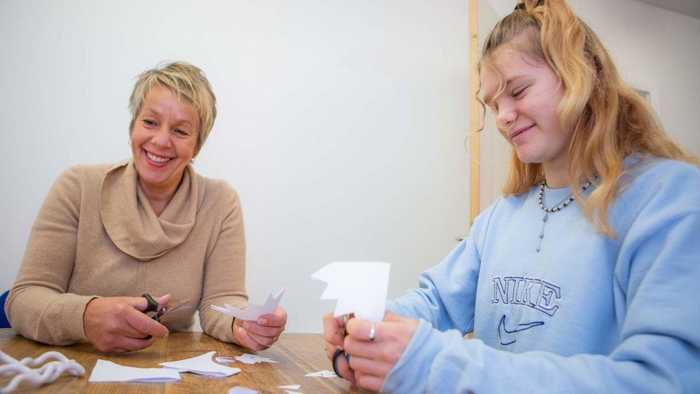What is Person Centred Care?
What does 'Person Centred Care' actually mean? How is it used in case management and why is it so integral to everything Circle do?
We put those questions to our team here to find out why the approach is gaining popularity.


Mary Tavinor
Head of Case Management - South of England
Occupational Therapist / Case Manager Children / Complex Disability
What is your definition of person-centred care?
Person centred care ensures that an individual’s opinion, values, and beliefs are considered the priority in every decision relating to their care. The individual should feel involved in all decisions relating to their care and every effort should be made to present information in a way that is accessible to the individual.
Why do you think it is important?
Using a person-centred approach will ensure that an individual remains motivated and engaged with their rehabilitation/care. It puts onus on the individuals emotional, personal and social needs, in addition to their medical needs, and generally leads to better working relationships between the individual and the professionals they are working with.
Can you give an example where you have delivered person centred care?
Working as an Occupational Therapist and then as a Case Manager, I deliver person-centred care for all my clients. As an example, I recently supported a young lady with the recruitment of her support worker. She was involved in every step of the process including:
- Writing the advert
- Second stage of the interview (she met with two potential candidates and was included in the decision making on a suitable candidate)
- Set the working hours based on her schedule e.g. when she wants to wake up, what she wants to do and who she wants to see.
- Choosing the activities or tasks she wishes to attend with her support worker
- Involved in goal setting

Alison Walker
Specialist Occupational Therapist
Case Manager
What is your definition of person-centred care?
Care in which the client is central to all decision making. Where possible the client should be the one making the decisions or supported to make the decisions. Where this is not possible the client's views should be considered often asking those closest to them to help to make sure the client's needs and wishes are central to any decision making.
Why do you think it is important?
This is important as the client is the one who we are providing a service for. If we don't place the client at the centre, we may not be fully meeting their needs.
Can you give an example where you have delivered person centred care?
When goal setting, I try to make sure these are goals that the clients want to meet. Something that is important to them. For example, making an accessible hen house.

Helen Burrow
Occupational Therapist
Case Manager - Adults & Complex Disability
What is your definition of person-centred care?
- Listening to the client.
- Let the clients lead your treatment plan/pathways, not the professionals.
Why do you think it is important?
So that therapy can be effective.
Can you give an example where you have delivered person centred care?
All my clients receive person centred care.
I got reminded once from a client of mine that I wasn’t listening to them in a meeting. Something I took on board and I like to think I have never repeated the same mistake twice! To me, when I actually listen properly to the client, I come away feeling like I know what I need to do next (which is always a nice feeling). When legal bodies and professional state what they think is best it is not such a clear message and not client centred care.

Dr Abi Cheeseman
Clinical Psychologist & MCA Service Lead
What is your definition of person centred care?
It’s easy to talk and think about this in the standard way eg that person centred care places the individual at the heart of all activities and decisions that are made with, about or for them. But I think it’s a lot more than that.
In a nutshell, person centred care is holistic and empathic care that is provided and delivered in a genuine, non-judgemental, respectful, empowering and compassionate way. It’s about placing the cultural, spiritual and moral values, wishes and feelings of the client first and then, and only then, overlaying on top your own professional recommendations, to work towards a helpful way forwards. Sometimes these align very well and in other cases they are at odds, but the skill is always to acknowledge and hold at the centre the client’s views, so that you can understand the client’s experience and respond in the most helpful way for them.
Why do you think it is important?
It’s important because this ensures that the rights of the individual are understood and respected, regardless of physical or mental state, race, culture, sexual orientation, gender, religious/spiritual beliefs, wealth/status, location. It means that the beliefs and preferences of those who often hold power and can make decisions are not automatically imposed on those that they are caring for and especially those who are vulnerable, weak or unable to speak out.
Can you give an example where you have delivered person centred care?
From the Mental Capacity Assessment (MCA) service perspective, person centred care starts from the moment we are involved. From how we speak to and about the individual, to how we use and store data and information about them, to how and when we make contact. It’s about fitting the appointments to the person’s preferences, rather than the other way around, and making sure we have enough information about the piece of work to ask the right questions and in the right way. We seek the views and preferences of the client and include this in our reports to make sure the client’s voice is heard and recorded.

Yvonne Spijkerman
BSc (Hons) Occupational Therapy
Clinical Director & Senior Case Manager
What is your definition of person centred care?
All services, support, care and education are tailormade based on the needs of the client and focussed on the goals the client wants to achieve.
Why do you think it is important?
Every person has the right to lead the live they choose to live and rehabilitation and care is there to support them to achieve this. This is their human right.
Can you give an example where you have delivered person centred care?
All the support packages my clients receive are person centred, but a good example would be the care we set up for client A. When she turned 18 the SEN school she attended could not offer any further education neither were the local colleges able to offer her education and meet her needs. We set up a bespoke home learning program accessing local resources and adapting her support worker team to help her access these activities and implement activities at home as guided/directed by the home learning Tutor. The client is very engaged with the home learning program and blossoming in her independence and her communication skills. She is supported by a consistent team of support workers who know her well at all times which makes her feel safe and secure and promotes her wellbeing and independence.

Di Magrane
Specialist Occupational Therapist
Senior Case Manager
What is your definition of person centred care?
Person centred care focuses on the elements of care and treatment that are most important to the person. Care must be taken not to bring our own assumptions into deciding what they might be. When an individual lacks the means to communicate their preferences due to cognitive or communication difficulties additional efforts must be made to understand what their care needs might be. This is likely to involve making Best interest decision based on information from those who know the person well in addition to close observations. Person centred care involves a network of people, family, carers and professionals and therefore requires co-ordination
Why do you think it is important?
It is important that the service is client driven as opposed to fitting into a pre-existing provision which may not recognise what is important to the person. It is essential to consider personal preferences alongside cultural and religious believes. The purpose is to enable/empower the person to do what they want to do and receive help in the areas they need it. Ultimately you are supporting the person to be in more control of their life and assist them in making more informed decisions.
Can you give an example where you have delivered person centred care?
All my clients!
One client in particular is a great example - they have:
- A highly individualised care plan to meet their complex care needs.
- A directly employed care team who have been interviewed by the Case manager and team leader and had a 2nd interview with the client and mother
- Their own adapted home with highly specialist equipment
- A Care package that is reviewed regularly and changed as any issues arise
- Well trained staff who have bespoke training which covers all aspect of the care plan. They have regular competencies checks and supervision.
- The case Manager co-ordinates provision and meetings between the family, professionals and care team members.
- They have a timetable of activities and are supported to try new activities and all responses are monitored.
- Those involved in her network work together to meet the best interests of the client.
Posted by Circle Case Management on April 7th 2022

